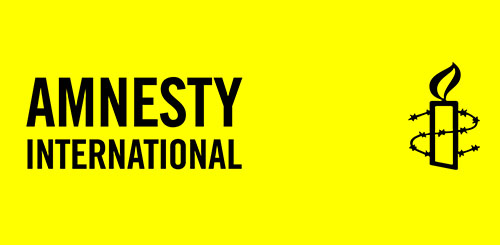In an Open Letter, Amnesty International and the British Columbia Civil Liberties Association (BCCLA) are calling on Defence Minister Harjit Sajjan for answers regarding possible Canadian complicity in grave human rights abuses in the course of a joint maritime anti-drug trafficking operation known as Operation Martillo undertaken by the Canadian Navy in cooperation with the US Coast Guard.
In the Open Letter, the organizations cite a joint investigation by CBC’s The Current and the Investigative Fund, as well as court documents filed in the United States, outlining a well-corroborated and extensive pattern of human rights violations associated with Operation Martillo. Among the concerns raised in the report are potential breaches of international human rights law against people suspected of maritime drug trafficking, in particular concerns related to arrest, detention, torture and mistreatment while detained on board US Coast Guard Vessels, including after being transferred from Canadian Navy Ships.
“The serious concerns of potential Canadian complicity in grave human rights abuses under the guise of joint anti-narcotic trafficking operations with the United States conjure disturbing memories of the Afghan detainee scandal,” said Alex Neve, Secretary General of Amnesty International Canada. “The Minister of Defence has a duty to transparently report on what measures Canada is taking to ensure its human rights obligations are being fully upheld in the course of this operation, or else it must be halted.”
Under the joint operation Canadian Navy Vessels cooperate with the US Coast Guard, including hosting US law enforcement aboard Canadian ships and transferring detainees onto US Coast Guard vessels. Once on board US ships, numerous instances have been reported of detainees being shackled to decks for periods of up to several weeks in harsh conditions without adequate shelter, food and sanitation and without access to legal counsel or the ability to contact family. In the media, Canada has sought to absolve itself of responsibility for these reported abuses by arguing that even when prisoners are held on Canadian Naval vessels and transferred to US ships, they are not Canadian detainees because they remain formally in U.S. custody.
“The explanations offered by Canada’s military fall far short of addressing the very serious questions related to this operation and Canada’s potential complicity in serious breaches of international human rights law,” said Josh Paterson, Executive Director of the BCCLA. “Canada ought to have learned from the Afghan detainee scandal that it cannot and should not hide behind willful blindness or conveniently narrow interpretations of its human rights obligations while participating in a joint initiative potentially fraught with dire human rights abuses. Right now, we are asking for more information from the Minister to demonstrate that is the case.”
In the Open Letter to Defence Minister Harjit Sajjan, Amnesty International Canada and the BCCLA are calling for further information related to Canada’s participation in the joint operation and investigations into potential complicity in human rights abuses, including:
· What investigations have been carried out into allegations that Canadian naval personnel were present and played a role alongside US Coast Guard personnel in joint high-seas operations leading to the apprehension and on-board detention of drug-smuggling suspects leading to detention conditions that violated international human rights standards?
· Will the Canadian Armed Forces publicly share the results of any such investigations?
· What is the Canadian Armed Forces’ position with respect to the human rights obligations of Canadian naval personnel carrying out joint high-seas interdiction, apprehension and detention operations targeting suspected drug smugglers?
· Even in circumstances were a detainee may never be in the direct custody of a Canadian naval officer, what is the position of the Canadian Armed Forces with respect to collaboration with the US Coast Guard in operations that do result in serious human rights violations of prisoners?
· What safeguards have been put in place by the Canadian Armed Forces to ensure that military personnel operating in any context – on land, at sea or in the skies – are not put at risk of becoming complicit in human rights violations, including arbitrary arrest, unlawful detention, torture and ill-treatment, carried out by another government?
Media Contact: Jacob Kuehn, Amnesty International Canada: 613-744-7667 ext 236 / jkuehn@amnesty.ca






















